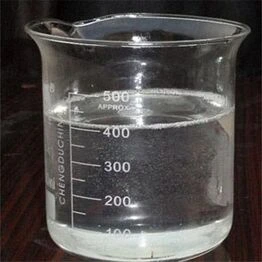IUPAC Name
(1-hydroxy-1-phosphonoethyl)phosphonic acid
Cas Number
2809-21-4
HS Code
2931.39
Formula
C2H8O7P2
Appearance
Colorless Liquid
Common Names
1-Hydroxy-1,1-diphosphonoethane (1-Hydroxyethylene)diphosphonic acid (1-Hydroxyethylidene)bis(phosphonic acid)
Packaging
1000 kg IBC drums
Brief Overview
HEDP is an odorless, colorless to yellowish water-soluble liquid with the properties of a chelating agent. The finished product is produced as a technical grade and has a long shelf life. Compared with other chelating agents, HEDP has multiple phosphonate (acid) groups and is very stable at high temperatures (greater than 1300 ºF) and acid concentrations; it resists oxidation by chlorine. The stability of the molecule is due to the C–P chemical bond in HEDP. In addition, HEDP is considered safe.
Manufacturing Process
There are two commercial methods for manufacturing HEDP. The first and more common is to react phosphorus trichloride with acetic anhydride in water. Phosphorus trichloride is converted to phosphoric acid in the reaction vessel (in situ) and then reacted with acetic anhydride. Two by-products, hydrochloric acid (HCl) and acetic acid, are produced and can be sold on the market. The balance equation is:
2 PCl3 + (CH3CO)2O + 6 H2O → C(CH3)(OH)(PO3H2)2 + CH3COOH + 6 HCl
The second method is a one-step version of the first process. Phosphorus acid anhydrous is reacted directly with acetic anhydride. As with the reaction starting with PCl3, the reaction is carried out at high temperature for at least 10 to 12 hours. The balanced equation is:
2 H3PO3 + (CH3CO)2O → C(CH3)(OH)(PO3H2)2 + CH3COOH
Water Treatment Industry
HEDP is a chelating agent that can perform three functions as it treats commercial water treatment. First, it can isolate heavy metal ions that make the water color or interfere with the cleaning function of laundry or shower gel. Second, it can be used as a scale inhibitor to prevent scale formation in commercial heating/cooling systems (such as boilers, air conditioners, and cooling towers). Third, it can prevent the decomposition of oxidizing agents such as peroxide bleaching agents.
